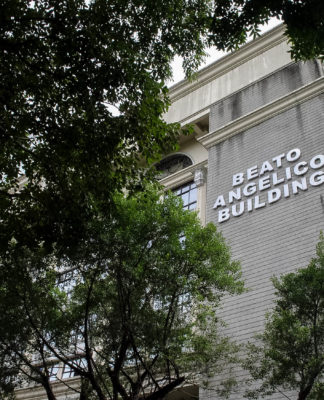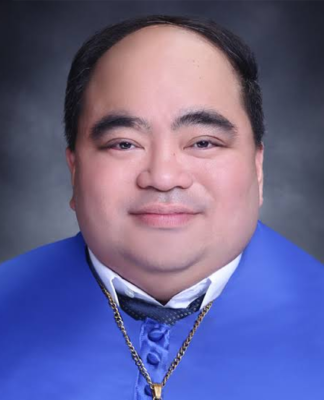RECTOR Fr. Tamerlane Lana, O. P. said he intends to strengthen the University’s values education program this school year in his address during the opening of the academic year at the UST Chapel last June 13.
The event was highlighted by a mass concelebrated by Fr. Lana, UST Vice-Chancellor Fr. Ernesto Arceo, O. P., and the Apostolic Nuncio Archbishop Antonio Franco.
“We intend to make a shift from a purely teaching university to a teaching, research source-oriented university and integrate more the Christian and ethical values in our country,” Fr. Lana said.
On the other hand, Archbishop Franco in his sermon lauded the University for its continuous efforts to enrich the fields of education, research, and community service.
“Your (UST community) specific mission concretized in teaching, research, and community service is indeed evangelizing education, an education that liberates (the mind) from (the) slavery of ignorance,” Franco said.
Furthermore, Franco praised the University’s efforts in emphasizing the importance of values formation.
“I have been informed that the administration is taking steps to clean its department or institute of value formation which is an excellent idea,” he said.
Likewise, Franco praised the University for increasing the number of scholarship grants to accommodate deserving poor students.
“I congratulate the University of Santo Tomas for focusing its attention this year in increasing the number of scholarships and community services to the poor in the Philippines,” he said.
Franco hopes that the additional scholarships and community service programs of the University will continue to mold good citizens and Christians.
“I pray that UST (will) continue forming not only outstanding doctors, lawyers, engineers, and educators but mainly good citizens and Christians who are honest, truthful, just, and compassionate – whom our society badly needs. When necessary, UST will continue renouncing evil in society,” Franco said.
Meanwhile, the College of Architecture Dean Arch. Luis Ferrer was chosen to deliver the traditional discurso de apertura, the school’s opening lecture.
Ferrer’s lecture focused on building “humane communities” based on the agenda drafted by the participants of the First International Conference on Humane Cities last April 2000 which was sponsored by the University.
The agenda called for a reflection on the fast-changing situation, renewing the importance and dignity of man, giving preferential option to the poor, and putting into practice the principles of subsidy and stewardship. It also called for a change of attitudes and methodology, and factoring back the concept of humaneness development and sustainability.
He said the changes that rapidly spread during the years have significantly taken a toll and diminished the quality of life in both urban and rural communities.
In addition, he said that the societal changes alienated the youth from mainstream culture and thus created a gap between the present and the older generations.
To illustrate his point, Ferrer cited the construction of the Manila Hotel, a historical landmark, as an example of the prostitution of a historic legacy.
According to Ferrer, because development is imminent, it has to convey with the needs of man. However, he wants to point out that development must give prerogatives and privileges to the less fortunate.
Ferrer said that to establish a humane community, the principle of stewardship must exist. He said that the government and the private sector have vital obligations in properly devising and handling the nation. He added that this ideal is taken for granted by those who are at the helm because of the sad realities like poverty and the destruction of the country’s natural resources. Billy Joe I. Allardo and Teodoro Lorenzo A. Fernandez



















